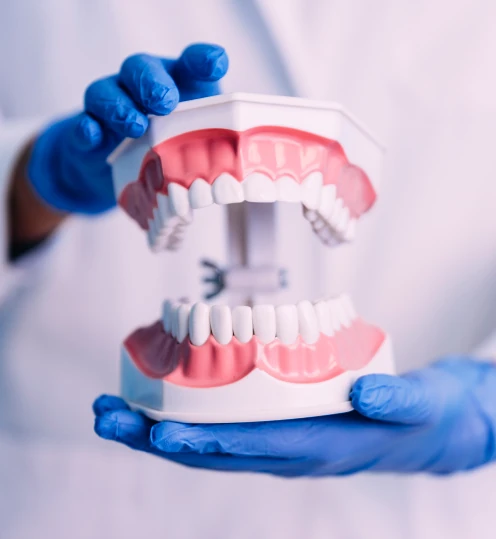Procedures
TMJ Dysfunction



TMJ Dysfunction
TMJ (temporomandibular joint) dysfunction is related to the jaw joint and muscles that control it. The TMJ acts like a sliding hinge, connecting your jaw to your skull. With TMJ dysfunction, the joints of the jaw and the chewing muscles do not work together correctly. The exact cause of TMJ disorders can be difficult to determine and may be because of a number of factors such as injury, arthritis, or genetics.

How Common Is TMJ Dysfunction?
5-12% of adults experience disorders in their temporomandibular joint
How Common Is TMJ Dysfunction?
TMJ dysfunction is more prevalent in younger persons and women
What’s The Connection?
- Women using estrogen supplements or oral contraceptives are more likely to experience TMJ disorders
Treating TMJ Dysfunction with Argyle Associates



TMJ Dysfunction FAQ
Common symptoms of TMJ disorders include:
- Pain
- Clicking, popping, or grating sounds in the jaw
- Jaw muscle stiffness or locking
- Limited jaw movement
- A change in the way the upper and lower teeth fit together
To be sure that you are suffering from a TMJ disorder, you will need a diagnosis from an oral and maxillofacial surgeon.
If you are experiencing a TMJ problem, one of our surgeons can consult with you. Once the cause of the problem is found, the best course of treatment will be recommended.
In most cases of TMJ disorders, surgical intervention is not required. Surgery is only considered when all other treatments fail to relieve you of your symptoms. Other treatment options have been shown to be effective in reducing discomfort and resuming normal life.
TMJ disorders cause pain and discomfort in patients, with the TMJ joint and surrounding musicals often over-strained. For some people, the discomfort is severe and seriously detracts from their quality of life. More serious cases of TMJ disorders can also limit the way you eat, with associations with malnutrition. People suffering from TMJ disorders also tend to suffer from headaches, dizziness, and nausea which have a negative impact on quality of life.
TMJ means Temporomandibular Joint while TMD refers to Temporomandibular Joint disorder. TMD and TMJ disorders are the same thing.

